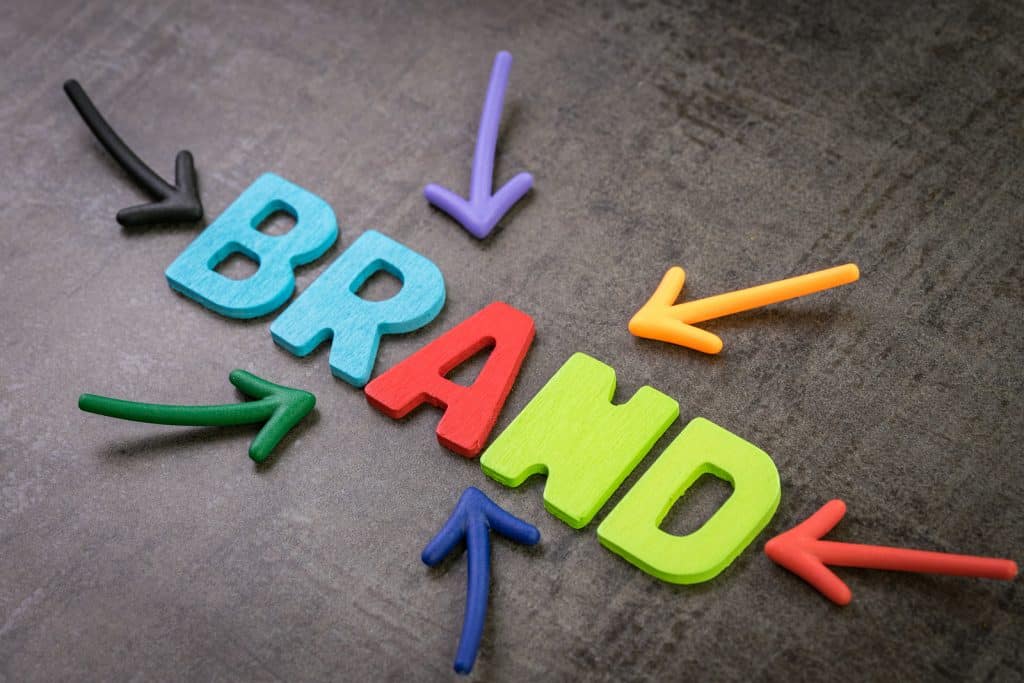Corporate Business Reputation Management – Why Brand Loyalty Matters
Having a strong reputation is key to the success of any business, be it large or small. Building that reputation and then maintaining it is no easy task. There’s an endless list of things that impact a corporate business reputation, whether for good or ill. Let’s get a little more specific. Something that goes hand in hand with a company’s reputation is its brand. A key concern in evaluating the strength of a brand is the level of loyalty to it among customers. No company can be successful in the long run without some level of brand loyalty.

What Exactly is Brand Loyalty?
Loyalty is showing firm and lasting support for something. Brand loyalty is when customers are committed to your product or service over that of the competition. It can’t be superficial and must involve consistent purchases of a product or service over time. Like any kind of loyalty, it has to be earned. There’s no one secret to creating and managing brand loyalty; many factors can be involved. This can make it challenging, but there’s also flexibility in it. It means that your business can use several different strategies in brand management. At the same time, it can be challenging to determine what aspects need more attention and where your strengths and weaknesses are. Let’s talk about some of the important things to know about managing brand loyalty.
What Factors Contribute to Brand Loyalty?
I won’t attempt to list all of them, because it would be too easy to miss something. Here are some of the most important factors, though explained by JW Maxx Solutions Online reputation management firm.

Convenience
This a pervasive form of brand loyalty, but certainly not the strongest. It could almost hardly be called brand loyalty, but that doesn’t mean it’s not an important factor in the success of many businesses. With brand loyalty based on convenience, a customer will choose a product or service because it’s the easiest to access. Local grocery or convenience stores are an excellent example of this. Residents shop there because it’s the closest option from where they live. The store probably doesn’t have the lowest prices or the best selection, so people are only shopping there for convenience and not other reasons like quality or cost. People aren’t going to drive out of town to shop at a grocery store like this unless there’s some other reason, because convenience isn’t a factor. We all buy things at one time or another simply because it’s the easiest to access.
Convenience based brand loyalty will only go so far. As soon as competition arises or a reason to go somewhere else comes up that outweighs the benefit of convenience, the edge is lost. If a similar competitor opens across the street from your business, convenience will no longer be a reason for customers to do business only with you. The other problem is when other factors become more influential, that is more important than convenience. To use the grocery store example, a larger grocery store with lower prices and a better selection could open in a neighboring town, and local customers may be willing to switch to shopping with them for those reasons. Convenience matters, but saving money and better a product or service are usually stronger factors.
Prestige
Sometimes people choose a brand, not for any real tangible reason, but because they think the brand is trendy and will impress others. People will do a lot of things to change the way people perceive them, and this plays a role in purchasing decisions. For example, someone might buy a specific clothing brand because it’s considered cool or trendy in their age group, even though a different brand might have a similar style at the same or lower cost. This kind of brand loyalty can be powerful but usually doesn’t last on its own. It’s also challenging to achieve and usually requires the implementation of other factors first to achieve it.
Integrity and Values
Many customers will choose a brand because the company seems to be in line with there personal beliefs and things that are important to them. This can include ethical issues or a company’s values or vision. For example, a company that advertises itself as having concern for the environment and uses sustainable materials in its products can have an edge among consumers who share those concerns. If a company has a reputation for treating its employees poorly, it may discourage consumers from doing business with them. People like to support things they believe in. For some consumers, quality and price are more or less the only factors, and they won’t think about these issues, but for others, their purchasing decisions will be significantly influenced by things like the ethical reputation of the company.

Trust and familiarity
If a specific brand has suited a consumer’s needs well over time, they’re unlikely to switch unless given a substantial reason. For example, if you’ve been going to the same dentist for a long time and you’re pleased with the job they do, assuming what they charge you is reasonable, why would you switch? Switching is risky, and people have a bias toward change. If trust can be earned and maintained, it will go a long way in establishing brand loyalty.
Camaraderie
Sometimes a brand will focus on building a community of consumers. This community can be a physical one, or it may be cultural. Buying based on camaraderie takes place when consumers want to part of a group that purchases the product or feel like they’re part of something bigger than themselves. Marketing can play a crucial role in this.
How do I build and maintain brand loyalty?
There are so many ways to do this, but below are three of the most important.

Focus on the Customer
A customer-centric strategy is key, and probably the most personal aspect of brand loyalty. Have you ever had an issue that required calling a customer service department, and your experience with the representative significantly affected your perception of the company? I certainly have. When customer service shows that they care and go the extra mile to make things right, it makes me want to keep doing business with them. On the other hand, a bad customer service experience makes me never want to go somewhere again. I might try again at some point, but they’re certainly not going to be my first choice. Implementing a customer-focused approach is challenging because it requires participation at every level, but when done right, it’s unbelievably powerful.
Reward loyalty
Offer incentives to your customers to stick around and reward those who have. This can include financial incentives like “loyalty rewards membership,” or crafting your services to meet the changes needs of long-time customers. Rewarding loyalty can be implemented structurally, everyone, or flexibly from customer to customer.
Have a positive public image
What do people think when they see your logo? Brand loyalty isn’t just about your reputation with individual customers, but your public image as well. Having strong values is a vital part of this, and they should be communicated publicly. One way of thinking about it is by giving your brand a story. Emphasizing the strong history of your company is one way of displaying a positive public image. Social media and advertising play a crucial role in disseminating the image and should be used wisely.
About JW Maxx Solutions The firm is based in Phoenix, Arizona, with an office in Latin America. The company specializes in both Personal online reputation management for individuals and corporate online reputation management.
JW Maxx is a leader in brand and reputation management for all segments of business and individuals. The company offers online brand management services, as well.
That’s a brief overview of brand loyalty; it’s importance, and things to keep in mind when building and maintaining it. Remember, happy; loyal customers are the foundation of your business.

